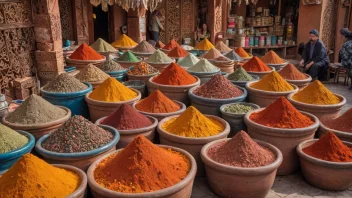1. The Legacy of Piri-Piri
Piri-Piri, a spicy chili sauce that has its origins in Portuguese cuisine, is a standout element in the culinary traditions of several African countries, particularly Mozambique and Angola. The sauce, made from crushed chili peppers, garlic, and spices, has become synonymous with grilled chicken dishes known as Frango Piri-Piri, a must-try for any food lover.
2. Bacalhau à Brás in Brazil
Bacalhau, or salted cod, is a staple in Portuguese cooking, but its influence extends to Brazil where it is often prepared as Bacalhau à Brás. This dish combines shredded cod with onions, potatoes, and scrambled eggs, showcasing the fusion of Portuguese and Brazilian flavors.
3. The Sweetness of Pasteis de Nata
Originating from Portugal, Pasteis de Nata are now enjoyed across Asia and Africa. These delectable custard tarts, with their flaky crusts and creamy centers, have been embraced in countries like Macau and Mozambique, where local variations abound.
4. The Influence of Feijoada
Feijoada, a hearty bean stew with meat, is another dish that exemplifies the Portuguese impact on culinary practices in Brazil. This dish is not only a feast but a cultural experience, often shared among family and friends, showcasing the communal aspect of Portuguese dining traditions.
5. African Flavors Meet Portuguese Techniques
In Cape Verde, the culinary landscape is richly influenced by Portuguese cooking techniques mixed with African ingredients. Traditional dishes often feature seafood, beans, and meats, prepared using methods that echo Portuguese heritage, creating a unique fusion.
6. The Role of Spices in Indian-Portuguese Cuisine
In India, particularly in Goa, the Portuguese influence manifests through the use of spices in dishes like Vindaloo and Xacuti. These dishes combine traditional Goan cooking techniques with Portuguese ingredients, resulting in vibrant and flavorful meals.
7. Timeless Traditions of Caldo Verde
Caldo Verde, a traditional Portuguese soup made with kale and potatoes, has found its way into the hearts of many in African and Asian countries. This comforting dish represents the simplicity and warmth of Portuguese home cooking.
8. The Rise of Portuguese Wine Culture
Portuguese wines, particularly Port and Vinho Verde, have gained popularity in both Africa and Asia. The unique flavors of these wines complement a variety of dishes, showcasing the adaptability of Portuguese wine culture.
9. The Fusion of Seafood in Macanese Cuisine
Macau, a former Portuguese colony, boasts a vibrant culinary scene where seafood plays a major role. Dishes like Macanese Curry Crab exemplify the blend of Portuguese and Asian flavors, making it a must-try for any food enthusiast visiting the region.
10. The Sweet Embrace of Bolo de Bolacha
This Portuguese biscuit cake, known as Bolo de Bolacha, has made its way to various parts of Africa and Asia. The no-bake dessert, made with coffee-soaked biscuits and cream, offers a delightful taste of Portuguese heritage.
In conclusion, the influence of Portuguese cuisine in Africa and Asia is a testament to the enduring nature of cultural exchange through food. From the spicy allure of Piri-Piri to the sweet indulgence of Pasteis de Nata, these dishes not only represent the rich culinary history of Portugal but also highlight the creative adaptations made by local cultures. As you explore these regions, be sure to savor these Portuguese-inspired delicacies that have transcended borders.






